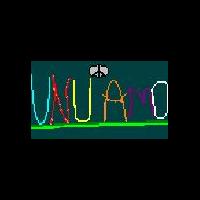Postitused: 147
Keel: English
k1attack (Näita profiili) 12. märts 2010 15:22.37
Vuyamu is actually quite good!
Greyshades (Näita profiili) 12. märts 2010 21:52.44
k1attack (Näita profiili) 12. märts 2010 22:07.54
Greyshades:I'm working on it I just need to find a place for the dictionary and stuff.What's the site?
ceigered (Näita profiili) 13. märts 2010 4:58.09
Greyshades:I'm working on it I just need to find a place for the dictionary and stuff.May I suggest, good sir, PBworks, Wikispaces or Google Sites (I prefer the latter, however I've been having a little trouble with my table of contents...)
JOW (Näita profiili) 13. märts 2010 12:53.26
ceigered:I agree. While 18 words may be a bit too minimal, it's certainly a good idea to explore how far vocabulary can be simplified. With Neo Patwa I've been trying to cut out as much as possible, so the vocabulary has been getting smaller rather than larger. I think that Arpee's experiments can contribute to finding what can be simplified and how far.
Anyway, Arpee's pretty cool, and while I wouldn't learn this language I have to say "good on 'im" for his efforts to further explore by practice the world of languages.
JOW (Näita profiili) 13. märts 2010 13:04.26
ceigered:Just as a point of interest, not a kind of metal. I'm pretty sure that electron comes from the Greek word for amber. Because if you rub amber, it makes static electricity.
For example, English is a highly powerful language, yet we use non-native Greek words like "electron". This isn't because we couldn't possibly make a word up ("electron" to my understanding refers to some kind of metal in the original Ancient Greek)...
qwertz (Näita profiili) 13. märts 2010 13:10.24
JOW:Yes, that sounds good.
it's certainly a good idea to explore how far vocabulary can be simplified.
Maybe a little bit off-topic: Ĉengsperanto mix of chinese, english and esperanto sounds interesting. I'd like see some more asian influences to Esperanto. Why not realising that make some simplified con-lang experiments.
ceigered (Näita profiili) 13. märts 2010 13:15.11
JOW:I think that Arpee's experiments can contribute to finding what can be simplified and how far.Exactly - it's just like crossing a busy road - wait for that guy to cross first and if he looks like he's gonna make it go behind him

And thankyou Jens, I was remembering erroneously the [url=http://en.wiktionary.org/wiki/ἤλεκτρον#Ancient_Greek]second definition[/url] no doubt based on the first (amber, due to the colour + shininess).
But now the use of "electron" makes much more sense in an abstract way.
JOW (Näita profiili) 13. märts 2010 13:16.24
ceigered:Neo Patwa 2.0!Thanks for the mention. Yes, it is still in flux to some extent. But I never intend to make it completely fixed. My basic goal is to find words that can be easily remembered, so whenever I find something new, I consider adding it to the language. The most recent changes I've made is to adopt a number of words from Chinook jargon, which are essentially onomatopoeic. Words like "tumtum" for "heart." In a sense, Neo Patwa is not so much a language system as a collection of words that are easy to remember.
(although that language seems to be currently in a state of developmental flŭ - last time I checked with Jens (a good while ago, maybe May 09?), the creator, he was investigating different orthographies and I think we had a discussion on, for example, the pronunciation of "h" (which is basically a stand in for a whole lot of (loosely) guttural sounds all the way to the alveolar approximate R (English R), but you might as well pronounce it "ĥ" or "h").
But on the other hand, the skeleton of the language is fairly well established. Since there really aren't any grammar rules in the first place, there isn't any need to change things there.

ceigered (Näita profiili) 13. märts 2010 13:38.53


